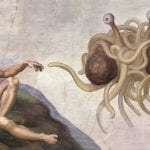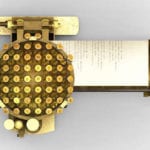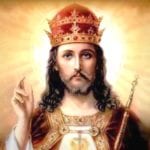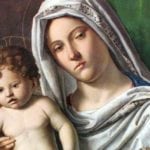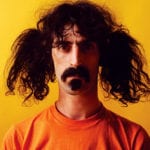 History
History  History
History  Weird Stuff
Weird Stuff 10 Wacky Conspiracy Theories You Will Need to Sit Down For
 Movies and TV
Movies and TV 10 Weird Ways That TV Shows Were Censored
 Our World
Our World 10 Places with Geological Features That Shouldn’t Exist
 Crime
Crime 10 Dark Details of the “Bodies in the Barrels” Murders
 Animals
Animals The Animal Kingdom’s 10 Greatest Dance Moves
 Movies and TV
Movies and TV 10 Box Office Bombs That We Should Have Predicted in 2025
 History
History 10 Extreme Laws That Tried to Engineer Society
 History
History 10 “Modern” Problems with Surprising Historical Analogs
 Health
Health 10 Everyday Activities That Secretly Alter Consciousness
 History
History 10 Dirty Government Secrets Revealed by Declassified Files
 Weird Stuff
Weird Stuff 10 Wacky Conspiracy Theories You Will Need to Sit Down For
 Movies and TV
Movies and TV 10 Weird Ways That TV Shows Were Censored
Who's Behind Listverse?

Jamie Frater
Head Editor
Jamie founded Listverse due to an insatiable desire to share fascinating, obscure, and bizarre facts. He has been a guest speaker on numerous national radio and television stations and is a five time published author.
More About Us Our World
Our World 10 Places with Geological Features That Shouldn’t Exist
 Crime
Crime 10 Dark Details of the “Bodies in the Barrels” Murders
 Animals
Animals The Animal Kingdom’s 10 Greatest Dance Moves
 Movies and TV
Movies and TV 10 Box Office Bombs That We Should Have Predicted in 2025
 History
History 10 Extreme Laws That Tried to Engineer Society
 History
History 10 “Modern” Problems with Surprising Historical Analogs
 Health
Health 10 Everyday Activities That Secretly Alter Consciousness
10 Christians Who Changed The World
Christianity has been one of the most influential and widespread religions since it was first adopted by the Romans and Greeks nearly two millennia ago. In 2,000 years of history, there have been great Christian leaders, prophets, scientists, politicians, and warriors, many of whom worked to change the world.
See Also: Top 10 Relics of Jesus Christ
With billions of memorable Christians peppered throughout history, only a select few could be said to have changed the world. While many changed it for the better, there are those who did so in the opposite direction. Whether their impact on history was good or ill, these ten important Christians changed the world, and are listed in no particular order.
10 Martin Luther
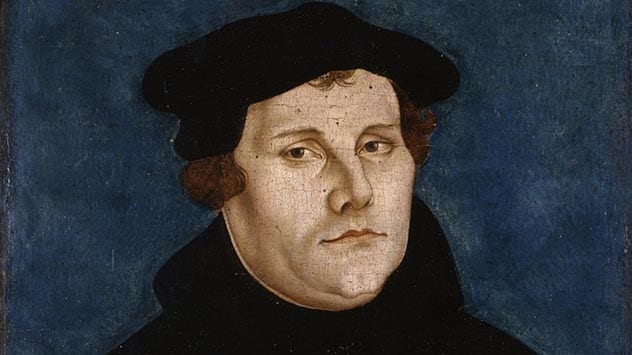
Of all the Christians who came before and after him, Martin Luther was arguably the most influential and divisive of them all. Luther was a priest who opposed the Catholic practice of efficacy and plenary indulgences, which were a way for the rich to purchase their way into Heaven. He challenged the practice and wrote a document of Ninety-Five Thesis, which he nailed to the door of the All Saints’ Church in Wittenberg on October 31st, 1517. The result of his Theses was the Protestant Reformation and the schism of the Catholic Church.
Today, there are thousands of churches following the teachings of Christ, but before Luther, there was the Catholic Church, Orthodoxy, and little else. By opposing the practices common to his faith, Luther set the kindling that would burn across Europe, bifurcating the Catholic Church with the creation of the Lutheran Church and Protestantism as a whole. Luther also argued for the translation of the Bible from Latin into the common tongue, as he believed everyone should be able to read it. With the help of Gutenberg’s creation and others, his beliefs became a reality, and the world was never the same. Luther was excommunicated for his actions and condemned as an outlaw by the Holy Roman Emperor, and he died in 1546 with the excommunication still active.
9 Martin Luther King, Jr.
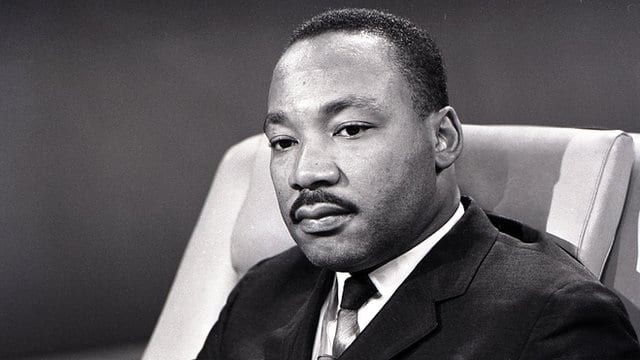
If you grew up after the civil rights movement of the 1950s and ’60s, it’s hard to understand just how divided the United States was regarding the rights of African Americans and other minorities. There was a great deal of positive change that came from that fight, and one of the men chiefly responsible for instigating that change in society was Martin Luther King Jr. King was a Christian minister who spearheaded the 1955 Montgomery Bus Boycott, and he fought against segregation and other Jim Crow laws limiting the rights of African American citizens throughout the southern regions of the United States.
King was able to fight against systemic oppression through the use of nonviolent civil disobedience. He followed the example set by his Christian beliefs as well as those of Mahatma Gandi, and through these means, he gained the respect and admiration of millions of people. King was assassinated in Memphis, Tennessee, in 1968, and his legacy has since permeated throughout history. He wasn’t the only civil rights activist of his time—many people honorably fought for their rights—but it was King’s approach and pacifist message that cemented his legacy in the subsequent annals of history.
8 Florence Nightingale
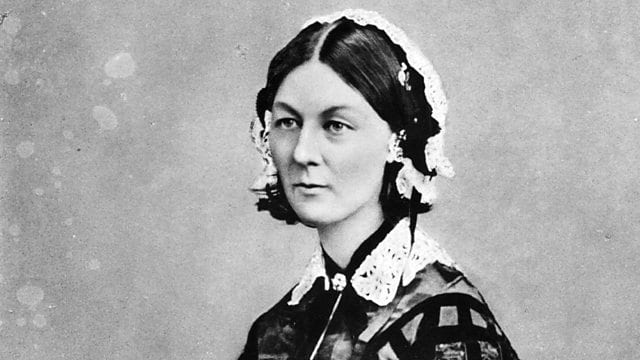
If you’ve ever had an injury or illness and were treated by a nurse, you can thank Florence Nightingale. Her name has become synonymous with helping people in need, and that’s largely due to her lifetime of work. Nightingale was a social reformer and statistician, but she is best known for her role as the founder of modern nursing. She managed and trained nurses during the Crimean War, and during this time, she cared for wounded soldiers at night, which earned her the moniker, “The Lady with the Lamp.”
Following the war, she continued to work in nursing, and she helped establish the importance of expanding women’s roles in the field. She established a nursing school at St. Thomas’ Hospital in London in 1860, which was the precursor of modern nursing. Despite being a Christian, the institution eas the first secular nursing school in the world and has since become part of King’s College in London. She fought to expand medical knowledge throughout her field, and she was an advocate for the opposition of discrimination against and by different denominations of Christianity.
7 Galileo di Vincenzo Bonaiuti de’ Galilei
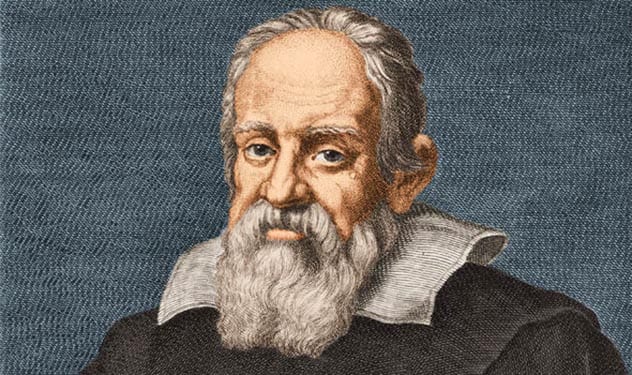
Galileo was an Italian astronomer, engineer, and physicist, who is credited as being the father of observational astronomy, the father of modern physics, the father of the scientific method, and the father of modern science. That’s a lot of kids in the world of science, but Galileo was a curious man, and when he looked up at the stars each night, he made spectacular observations, many of which we now take for granted. In his lifetime, which was between 1564 and 1642 AD, Galileo became a controversial figure, whose work landed him in trouble with the Catholic Church, even though he was himself a pious Roman Catholic.
One of his most significant contributions to scientific knowledge was the championing of the Copernican idea of heliocentrism, which states the Earth (and planets) revolve around the Sun. While we now know this to be absolutely correct, Galileo unfortunately conflated the concept with the idea that it also proved the Bible to be false. He was tried by an Inquisition and found to be “vehemently suspect of heresy.” He spent the remainder of his life in house arrest, and it wasn’t until October 31st, 1992 that Pope John Paul II apologized for the Church’s past persecution of Galileo.
6 Blaise Pascal
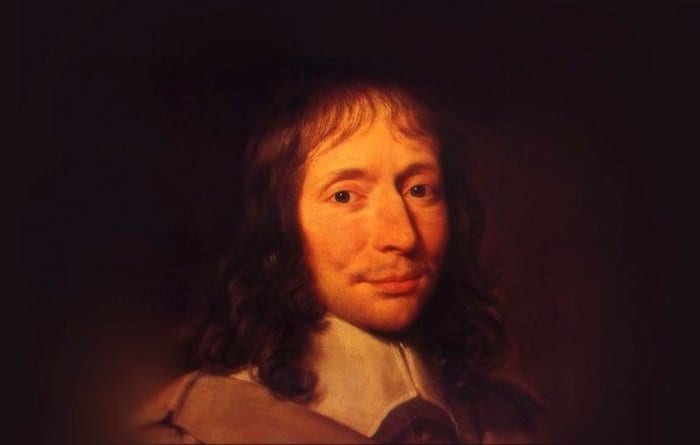
A device many people take for granted these days is the calculator, but in the early 17th-century, such an instrument was nearly impossible to imagine. It took the work of many people to create the first mechanical calculators, but one of the most prominent inventors who succeeded was Blaise Pascal. The effort took him a little more than a decade, and while this is undoubtedly a remarkable achievement, it’s hardly the only one for which he is known. Pascal was a physicist, mathematician, Catholic theologian, child prodigy, and one of the most ardent supporters of the scientific method.
His work in mathematics helped further the subject of projective geometry and modern economic and social science theories. He also studied the nature of fluids, which helped him to clarify the concepts of vacuum and pressure. In his later years, he focused much of his studies on theology and philosophy, though he died at a relatively young age of 39. He is well known today as the creator of Pascal’s Wager, a philosophical argument that posits humans bet with their souls when they question the existence of God. The Wager further suggests, a rational person should live as if God exists because doing otherwise would result in damnation whereas wagering on God and being incorrect loses nothing.
5 Napoléon Bonaparte
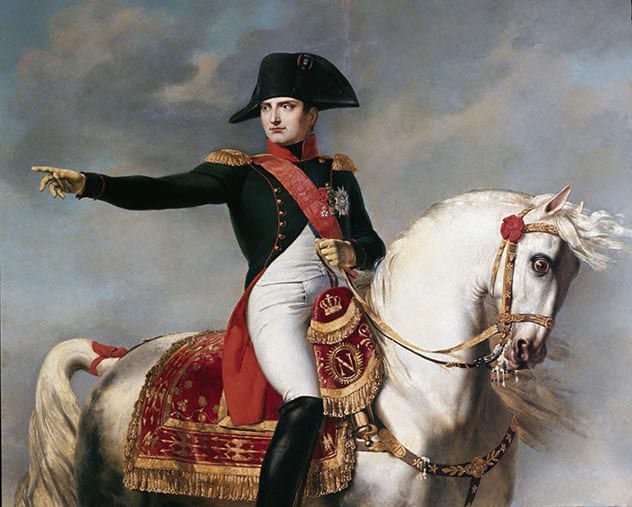
European history is rife with despots, dictators, Kings, Queens, and Emperors, but few could stand up to Napoléon in terms of their impact on modern history. Napoléon Bonaparte was a French military leader and statesman, who elevated himself during the French Revolution and continued to conquer in the name of France during the French Revolutionary Wars. He proclaimed himself Napoleon I, the first Emperor of France, and he dominated European and global affairs for a little more than a decade. He led France throughout Europe during the Napoleonic Wars and was victorious in most of his conquests, which helped to establish a vast empire.
His exploits have earned him considerable praise and condemnation during his lifetime and long afterward, though he regarded as one of the greatest military commanders in history. His empire expanded through much of Spain, France, Germany, Italy, and well into Eastern Europe. Napoléon wasn’t a profoundly religious man during his lifetime, and at most, he could be said to have been a deist. He made use of Catholocism more than participated in its practice, and though the Church excommunicated him, he reconciled with the Pontiff before his death in 1821.
4 Michael Faraday
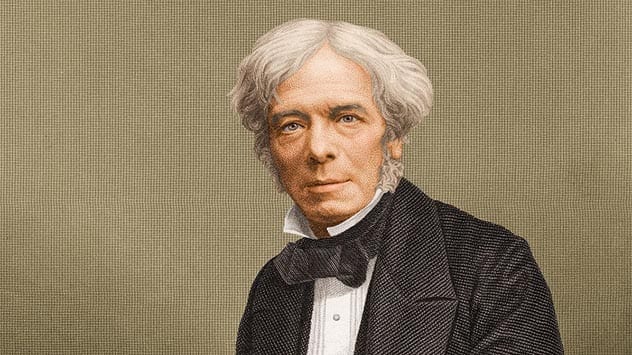
If there’s one thing most people couldn’t live without, but often take for granted, it’s electricity. Even for those of us who use it constantly, most only understand it a little bit, but there’s no denying we can’t live long without it. you wouldn’t be reading this at all if it weren’t for the existence of electricity, and there wouldn’t be a modern electric grid, were it not for the work of Michael Faraday. Faraday was an English scientist and chemist who contributed greatly to the world’s understanding of electromagnetism and electrochemistry. He is credited with many discoveries, but his primary discoveries included the underlying principles of diamagnetism, electrolysis, and electromagnetic induction.
Faraday’s contributions to electricity cannot be overstated, and his work set the foundation of the electric motor. Were it not for his experiments, and work with magnetism and electricity, there’s no telling how long the world would have remained in darkness with only the dim light of lanterns flickering through the night. While Faraday was a deeply religious man, he never let the world of science and religion clash, which was a problem for many researchers in the 19th-century. Albert Einstein kept a photograph of Faraday on his study wall alongside Newton and Maxwell, which says plenty. If a man like Einstein keeps a picture of someone around for inspiration, he must have done something right.
3 William Shakespeare
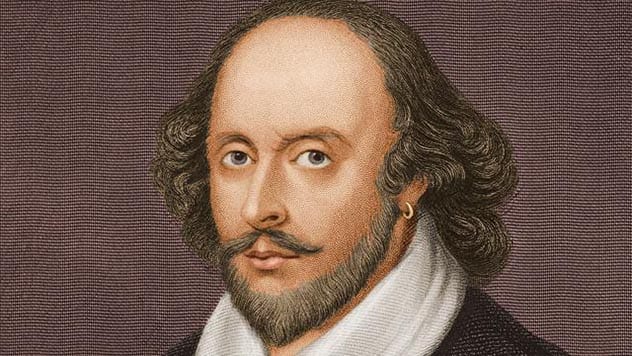
It’s doubtful there’s an English-speaking adult alive on the planet who has never heard of William Shakespeare. The Bard, as he’s commonly called, was an English poet, playwright, and actor whose work in the 16th and early 17th-centuries have landed him praise as the greatest dramatist in the world. His work consists of 39 plays, 154 sonnets, two narrative poems, and several other verses. Every one of his plays has been translated into every major language still spoken today, and his work is performed more often than any other playwright.
Shakespeare’s work started mostly with comedies and histories, but his greatest works fall in the vein of tragedies. These include Hamlet, Othello, Macbeth, Romeo and Juliet, and King Lear. Not only is his work played across the world throughout the year, but his plays and writings have helped to influence storytelling as we know it today. Modern adaptations of his work, stories about his life, and studies of his craft continue to influence modern forms of entertainment, and that’s not a trend that’s likely to change anytime in the near future. Shakespeare came from a Catholic family but conformed to the Church of England. Despite this, the exact nature of his Christian beliefs remain the subject of widespread debate.
2Flavius Valerius Aurelius Constantinus Augustus
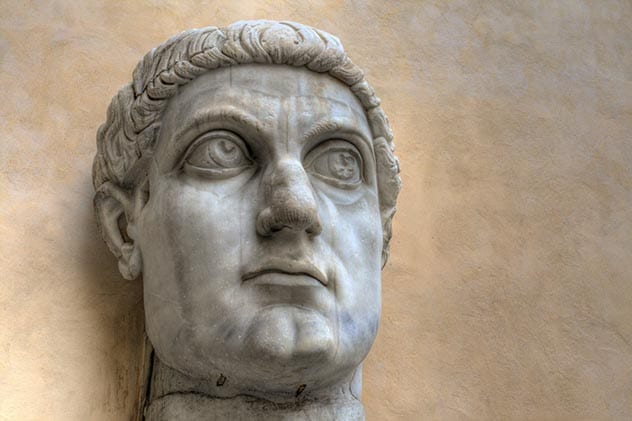
Emperor Constantine I, more commonly known as Constantine the Great ruled over the Roman Empire from 306 to 324 AD. Constantine had many great achievements during this lifetime, but he is probably best known for his adoption of Christianity, making him the first Roman Emperor to convert to the growing religion. Granted, he did so on his deathbed, having lived his life as a Pagan, but when he was alive, he made certain proclamations that helped Christianity become the dominant religion throughout much of the world. Via the Edict of Milan, he helped declare religious tolerance for the faith in the Roman Empire, and he also called for the First Council of Nicaea, which resulted in the Nicene Creed.
Upon his orders, the Church of the Holy Sepulchre was built at the purported site of Jesus’ tomb in Jerusalem, and this became the holiest site in all of Christendom. Constantine was also instrumental in moving the Roman capital to Byzantium, which was changed to Constantinople. This resulted in a transition of the Roman Empire to the Byzantine Empire, which remained for more than a thousand years. Of his many accomplishments, Constantine’s protection of the Catholic Church is easily his most important to history, and he has been recognized for his efforts through his canonization by the Orthodox and Roman Catholic Church. He is celebrated every year on May 21st with a Feast Day, named in his honor.
1 Johannes Gutenberg
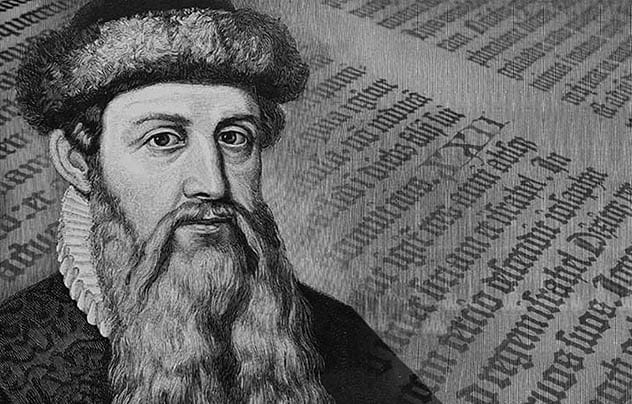
Throughout history, there have been polarizing people who changed the world for the better or worse, but one of the most prominent would have to be Johannes Gensfleisch zur Laden zum Gutenberg. While he didn’t invent printing, he introduced it to Europe with his invention of the movable type printing press. He started a Printing Revolution, which changed the world completely. Imagine there were no bookstores, and the only books that existed were handwritten by monks—that’s the world in which Gutenberg lived. He changed all that by creating an easy and relatively inexpensive way of mass-producing the written word.
His work played a crucial role in furthering the education and literacy of the masses, which sparked the concepts and revolutionary ideas leading to the Renaissance, Protestant Reformation, the Scientific Revolution, and the Age of Enlightenment. By printing the Bible, he managed to get it into the hands of more people, and this led to more independent thought among Catholics, which ultimately helped lead to widespread change and the Protestant Schism. Few people in history could hold a candle to the changes brought about by Gutenberg’s work, and he was recognized by Time-Life Magazine as the “Man of the Millennium” in 1998.
For more lists like this, check out 10 Obvious Lies That Changed The World, and 10 Accidental Inventions That Changed The World.


